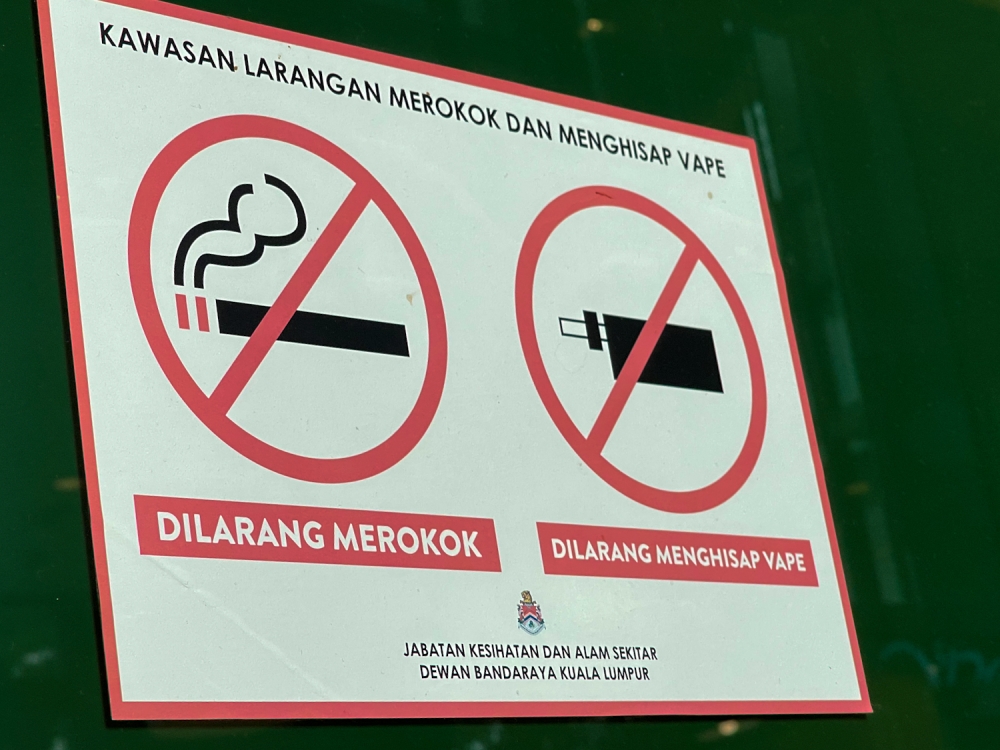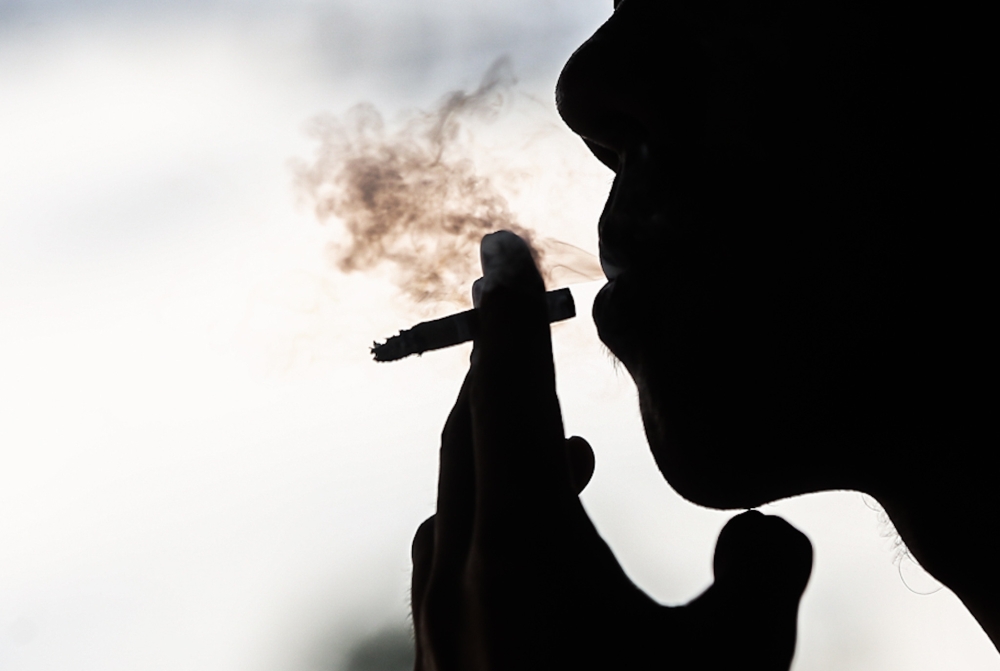KUALA LUMPUR, Sept 26 — Do you sell vape products or e-cigarettes to children?
Beware, from October 1 onwards, a new law will make this a crime in Malaysia and can even land you in jail.
Here’s a quick and simple summary by Malay Mail of what you need to know about the Control of Smoking Products for Public Health Act 2024.
1. Don’t sell cigarettes or vape products to anyone below 18
Under this law, a minor or a child is defined as a person aged below 18 years old.
You will be fined or be jailed or receive both punishments, if you are convicted in court of selling any smoking products (cigarettes, e-cigarettes, vape liquid or vape gel) to a child.
The new law gives a wide definition of “sell”, which includes eight situations:
- barter/ exchanging of goods
- offering/attempting to sell; causing/allowing to be sold; exposing for sale
- receiving, sending, distributing or delivering for sale or exchange
- supplying smoking products where the supplier will receive a reward
- possessing smoking products for sale or exchange; or possessing smoking products while knowing it may be sold or offered or displayed for sale (including electronic sale)
2. Children who buy vaping products will be breaking the law
If you are a child, and you buy or use any smoking products (including vapes), you will be committing a crime under this new law.
The consequences for children who are convicted in court for buying or smoking or vaping are: a maximum RM500 fine or community service (according to the court’s orders under the Child Act 2001 or Criminal Procedure Code).
Under the Child Act 2001, the court can order a child (aged below 18) to perform a maximum 120 hours of community service within a maximum six-month period. Failure to comply with the community service order’s requirements can result in a summons or arrest warrant, and also other further court orders.
Under the Criminal Procedure Code, the court can order a “youthful offender” (aged 18 or above, but below age 21) to perform a maximum 240 hours of community service. This will come under the Ministry of Women, Family and Community Development and means any work, service or course of instruction for the betterment of the public.
Under both situations, the court can specify the time and place of such community service and also add on other conditions for the child to follow.
3. What happens if you smoke in a non-smoking place?
The health minister can gazette and declare any building, place, area or vehicle — which can be accessed by the public — as a non-smoking area.
If you smoke there, you can be fined up to RM5,000.
If the owner of this non-smoking area did not take steps such as putting up a warning sign on the smoking ban, they can also be fined up to RM5,000.

4. Other offences (e.g. advertising/ promoting smoking)
There are multiple other crimes in this new law, including promoting e-cigarettes to customers by saying they can use it to “quit smoking”.
Then there are also the crimes of selling smoking products to retail customers without following the minimum selling price or conditions set by the Health Ministry; and not following the Health Ministry’s requirements for the packaging and labelling of smoking products.
Depending on the offence and whether you are a first-time offender or repeat offender, individuals who break this new law may face maximum fines ranging from RM10,000 to RM30,000 and maximum jail time ranging from one to two years, or both fine and jail.
Similarly, depending on the number of times an offence is committed, companies may face maximum fines ranging from RM10,000 to RM300,000, and maximum jail time ranging from one to three years, or both fine and jail.
5. Sellers must register smoking products within six months from Oct 1
If you import, manufacture, or distribute any smoking products (including e-cigarettes, vape liquids, vape gels), please register with the Health Director-General within six months from October 1, 2024.
If you fail to do this, you can be jailed or fined under Section 3 of the new law.
If the director-general rejects a registration application for the smoking product, the importer/ manufacturer/ distributor must — at its own expense — recall and stop selling it.
But don’t misunderstand.
The Health Ministry’s Disease Control Division’s chief assistant director-general Dr Muaz Sayuti was reported by Bernama on September 23 as saying that registration of smoking products is different from the context of registration of medicines with the Health Ministry, which would indicate such medicines to be safe.
Instead, he said such registration is to enable monitoring and regulation of smoking products.
6. Why does this new law matter?
Based on the Hansard in the Dewan Rakyat during parliamentary debates on this law in November 2023, the new law covers:
- tobacco products (e.g. cigarettes, cigars, shisha)
- substitute tobacco products (e.g. cigarettes not made from tobacco leaf but from tea leaves, nipah leaves and others; smoking products featuring liquids)
- smoking substances (includes liquid or gel which contain or do not contain the addictive substance nicotine. Basically, any liquid or gel used in e-cigarettes or for vaping)
This is important, because then Health Minister Dr Zaliha Mustafa on November 29, 2023 told the Dewan Rakyat that e-cigarettes or vapes have been sold in Malaysia since 2015, but Malaysia’s existing regulations (covering only tobacco-based products) did not cover vape liquids or gel (which were not tobacco-based but featured ingredients like nicotine or flavouring).
A loophole that allowed vape liquids to be freely sold in Malaysia was created when the government excluded vape liquids or gels with nicotine from regulation on March 31, 2023. The removal of the regulation came after the government’s decision to collect tax on such products from April 1, 2023.

Under the new law, the Health Minister can order the prohibition or restriction of the importing, manufacturing, distributing or selling of smoking products; if the minister is satisfied of an acute or critical situation that seriously endangers the public’s lives or health or safety due to the use of smoking products.
The minister also has the power under the new law to make regulations covering the cancellation, suspension or withdrawal of registration of smoking products, among other things.
In short: Finally, Malaysia has a law that clearly regulates vape products/ e-cigarettes and their liquids or gels. This new law closes the loophole where e-cigarettes and vape products could be freely sold and promoted (including to children).



















